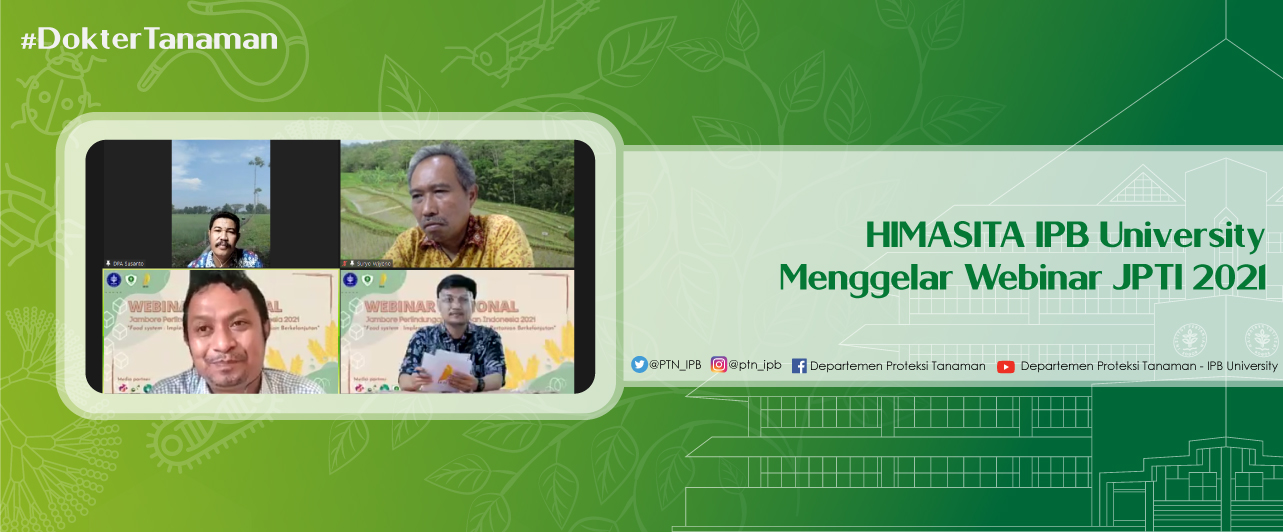
HIMASITA IPB University Organize JPTI 2021 Webinar
The Plant Protection Student Association (HIMASITA) IPB held a 2021 Crop Protection Jamboree (JPTI) Webinar with the theme "Food System: Agroecological Implementation for Sustainable Agriculture". This activity is a work program of the HIMASITA Professional Division and is held once a year. The JPTI webinar was held on Saturday, November 6, 2021, which was attended by 101 participants consisting of students from IPB University, Jember State Polytechnic, Sriwijaya University, Brawijaya University, Gadjah Mada University, Lampung University, Yogyakarta Institute of the Arts, Hasanuddin University, Airlangga University. , Syiah Kuala University, Ambassadors of Farmers, Farmers, and the general public. The speakers who attended the JPTI Webinar activity "Food System: Agroecological Implementation for Sustainable Agriculture" were David Ardhian who is a CTSS IPB University food system analyst, Dr. Ir Suryo Wiyono who is a lecturer in the Department of Plant Protection at IPB University and Susanto who is the Ambassador of Mainstay Farmers of the Indonesian Ministry of Agriculture Korwil East Java.
The activity was opened by the MC, namely Reza Rama Gunada, a student of PTN 55 and Nisa Aulia Arrahmah, a student of PTN 56, then continued with the reading of recitations by Dede Nasrudin, a student of PTN 55, who then sang the song Indonesia Raya and the IPB Hymn. The delivery of remarks by Mulia Restafiani as Chief Executive of JPTI was followed by remarks by the Head of the Plant Protection Department by Mr. Dr. Ali Nurmansyah, M.Si and remarks by Mr. Dr. Ir. Sugiyanta, M.Si as the Dean of the Faculty of Agriculture. The event was continued by the moderator, Rizal Ramadhan, a student of Plant Protection class 55 as well as the introduction of the speaker. The first event started with the presentation of material by Mr. David Ardhian, regarding a CTSS IPB University food system analyst: Food and Agriculture Sustainability. He said that regarding the situation of the food system in Indonesia and the various issues experienced. Based on observations that have been made, it is known that staple food production in Indonesia is relatively stable, but there has been a continuous increase in prices over the last few years. In addition, food production is still focused on carbohydrates while the concept of self-sufficiency in nutrition-based food has not yet been implemented. Even though the need for animal protein, vitamins and minerals is still not being met. There is an increase in food security, but the score is still low on aspects of quality and safety and natural resources resilience. Vulnerable to income shocks, the threat of a fairly high disaster, farmer welfare issues and various other issues. He also provided several proposed solutions related to agricultural problems in Indonesia including an agroecology-based game changer solution, reform of input subsidy policies (chemical fertilizers) towards sustainability, building a downstream business ecosystem, reducing losses and food waste and encouraging sustainable consumption.
The second event was followed by material presentation by Mr. Dr. Ir Suryo Wiyono with discussion on Strong Agroecosystem - Strong Food Production. He conveyed that there was a misunderstanding in the general public regarding the relationship between agriculture and the environment. It is a big mistake if there is an assumption that to develop agriculture, you must inflame the environment. The use of pesticides which are considered to be able to help increase agricultural production in the community is one example of this inaccurate assumption. Furthermore, he discussed the relationship between agriculture and the environment. Agriculture can affect the environment such as harvesting activities, land cultivation, various plant varieties and the use of pesticides. Likewise with the environment that can affect agricultural activities such as water quality and quantity, the natural capacity of the environment to provide pest and disease control, the presence of microbes and fauna that affect soil quality, climatic factors that determine the habitat suitability of each plant species and insect pollinators. His conclusion is that a healthy agrosystem is a critical factor in food production. There needs to be a change in mindset, between agriculture and the environment cannot be curbed. Strong agriculture certainly requires a healthy environment as well. An agroecological approach is needed to achieve sustainable food production. Finally, there needs to be strong policy support.
The third event continued with the presentation of the material on the Role of Appropriate Technology by Mr. Susanto. He said that the differences in agriculture in the tropics and sub-tropics. In sub-tropical areas, nature can help cut off pest attacks. This is due to seasonal changes in the sub-tropics. Winter is considered to be able to break the pest cycle. However, during the winter, agricultural activities are limited, so a greenhouse is needed so that agricultural activities can continue during the winter. Unlike the tropics which only consist of two seasons, namely summer and rainy season, agricultural activities can take place throughout the year. But the negative impact, the pest cycle will continue throughout the year. Based on this, farmers are required to know and understand the pest cycle. This understanding can help farmers to break the cycle of pests. Pests themselves can come from all directions and can appear at any time. Based on these problems, technology is needed to overcome them. The first step is to monitor agricultural land. This activity can be assisted by installing lights on each plot of land. After monitoring, farmers can continue pest control by setting traps. One of the traps that can be used is a light insect trap that can be installed on land with two kinds of energy sources, namely solar panels and electrical energy. Traps based on electrical energy sources must be designed using DC current to avoid the impact of labor on agriculture. In addition, mulch is needed to maintain moisture and prevent farmers from using herbicides. Some of the pests that were successfully controlled were butterflies/moths, brown planthoppers, trips, orong orong/ground dogs, kis-kisan, ground bedbugs, and night insects. This trap can be applied to several commodities such as shallots, rice, coffee, cocoa, cabbage, chilies, and salak.
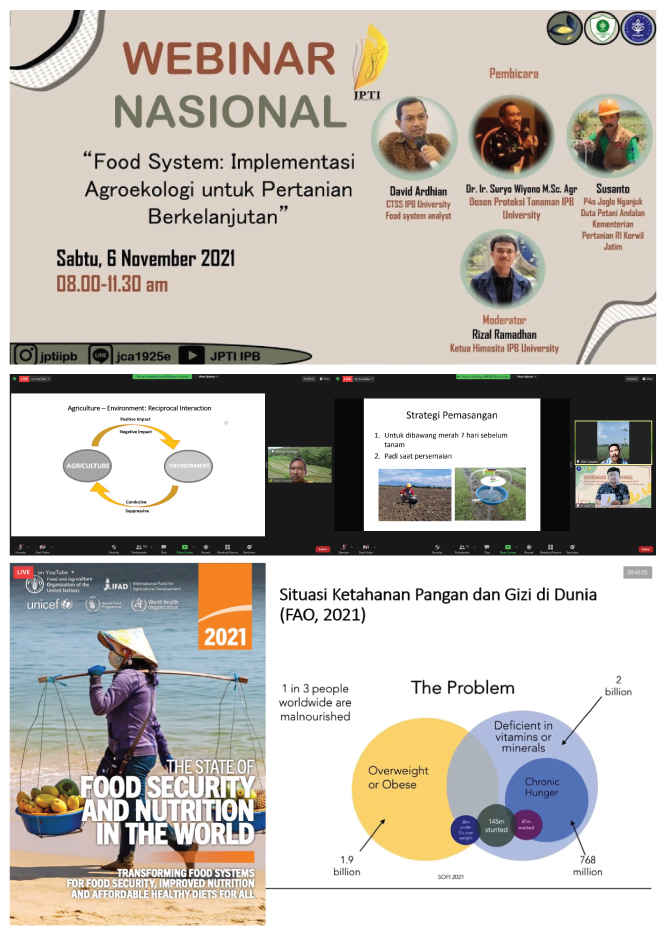
The event was followed by a discussion session consisting of three terms. The first question in term one discusses about the planthopper pest, known to the Javanese as cutting necks, which still attacks several varieties of rice seeds and their control and how to effectively eliminate rats by brother Ahmad Muntholib. According to Mr. Suryo Wiyono, the solution given is to control by doing intensive PHTB such as immunization, returning straw, optimizing fertilization and avoiding the use of pesticides. For rats, you can use a trap barrier system, in Subang this control technique is very effective for controlling rat pests. In the second term, the first question discusses the practice of agricultural cultivation with various other agricultural fields such as the agroforestry system, whether the attack of pests and diseases is higher so that it can reduce production and if control is carried out it seems that various elements must be considered by sister Shilfa Novianti. Based on the opinion of Mr. Susanto, agroforestry is expected to be able to build institutions to overcome the problems faced by farmers. Meanwhile, the existing institutions in Indonesia are still regionally based, not problem-based. The second question discusses the food estate program carried out in Indonesia and what is the opinion of the speaker regarding the attitude and government policy to protect the environment in Indonesia by Angger Rizky Firdaus. Based on Mr. David's answer, there needs to be the involvement of all parties and multi-stakeholder consensus, which means that the chosen effort must be based on an agreement. Regarding food estate, production centers are not only located in Java, but must be spread across various regions. Food estate development needs to be carried out inclusively, control needs to be directed to sustainability and the development of food production centers is carried out by the ministry. So based on this, the policies carried out by the government must run well and can be a solution if these aspects are improved. Based on Mr. Suryo Wiyono's answer, it is said that if the ecosystem has a broad scope, then all supports affect the productivity and sustainability of the agricultural system. The existence of damage outside the natural agro-ecosystem system cannot be avoided because of the interrelationships between each other agro-ecosystem. There needs to be a high level of public awareness to encourage the government to support strong ecosystems and agro-ecosystems. The discussion session was continued in the third term. The first question discusses what factors affect the ineffectiveness of the pest traps and their solutions and what needs to be considered before installing pest traps in the field by sister Sella Oktavia. Based on the opinion of Mr. Susanto, the effectiveness of the pest trap needs to be adjusted to the target commodity and an analysis of the technique of using the trap. In addition, farmers must know the cycle of pests. Control using own lights needs to be overlay based for long-term targets. Traps should be applied 1 week before planting. The second question discusses the technical strategy based on the Javanese myth about raising goats, cows and chickens in one area by Sumarno's brother. Based on the opinion of Mr. Susanto, the use of livestock manure cannot be applied directly. There is a need for a compost house to process organic fertilizer further before applying it to the land. The construction of a compost house needs to be in a complex with land so that the use of fertilizer can be carried out effectively and reduce the cost of applying fertilizer.
After the discussion session, it was followed by a closing statement by each speaker and the presentation of conclusions by the moderator. The event continued with the presentation of certificates to speakers and documentation of all participants present. After that, entertainment activities for all participants and door prizes were distributed. The event was closed by greeting by the MC.
The Indonesian Crop Protection Jamboree Webinar with the theme "Food System: Implementing Agroecology for Sustainable Agriculture" received a good response from the participants. Participants seemed enthusiastic during the webinar. Through the Indonesian Crop Protection Jamboree Webinar, we hope that participants will gain knowledge and insight about the food system in an effort to realize sustainable agriculture and the achievement of SDGs 2030 and can be a means for students, farmers, and all parties present to share experiences and knowledge related to food systems and concepts. agroecology for sustainable agriculture.
#DokterTanamanIPB #JamborePerlindunganTanaman #JPTI #Webinar #PTNkeren #IPBuniversity


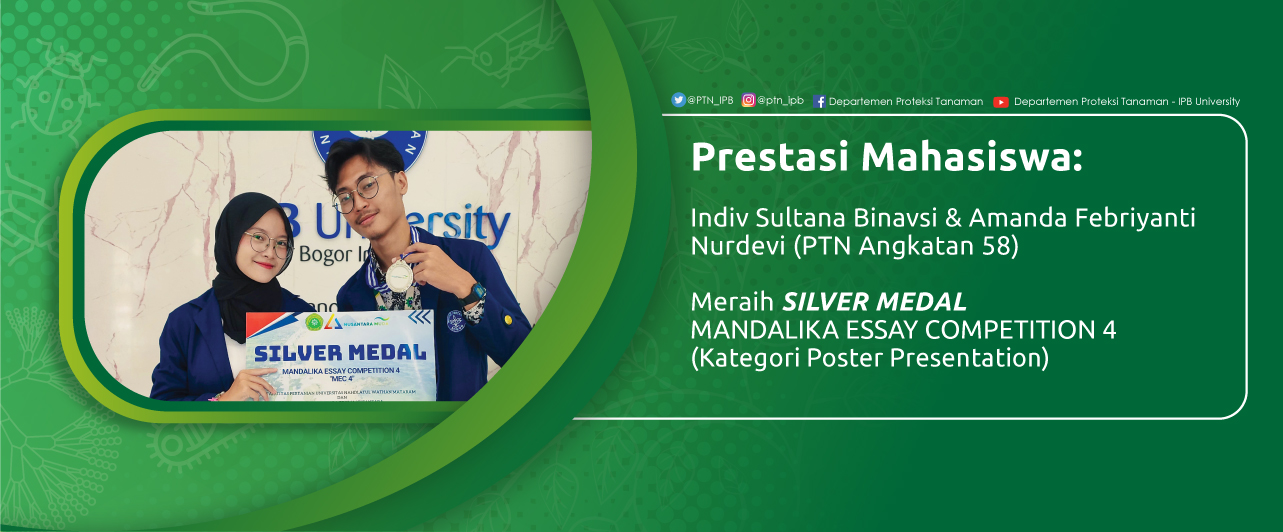
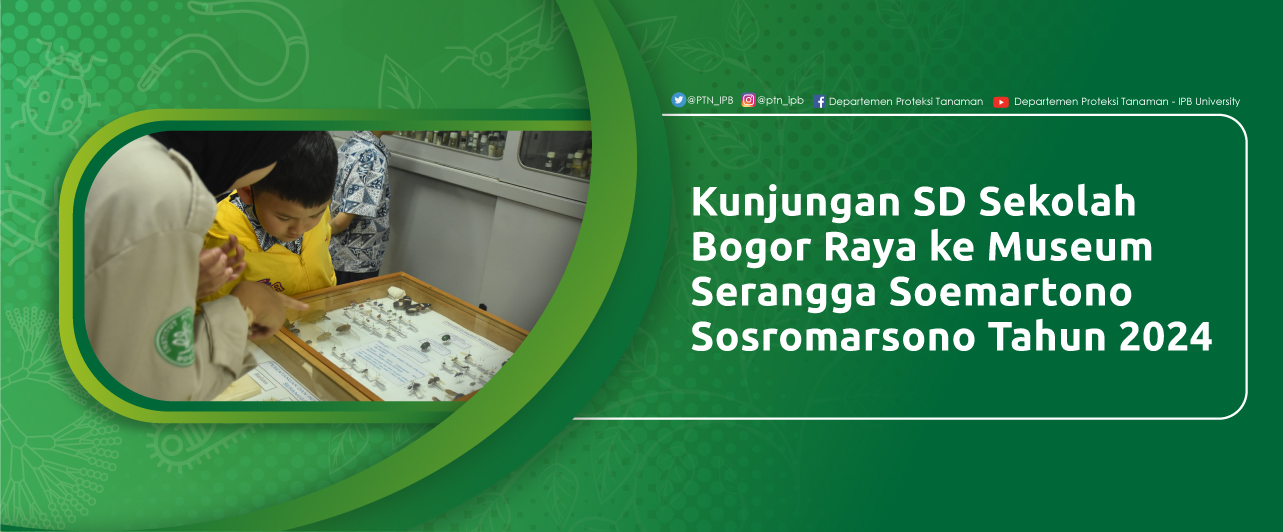
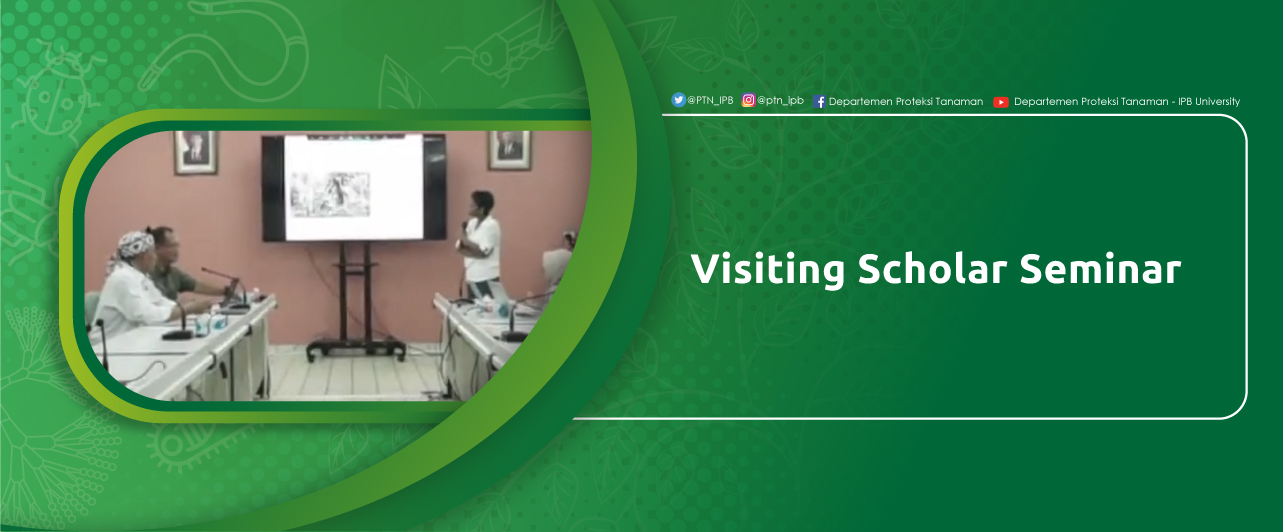
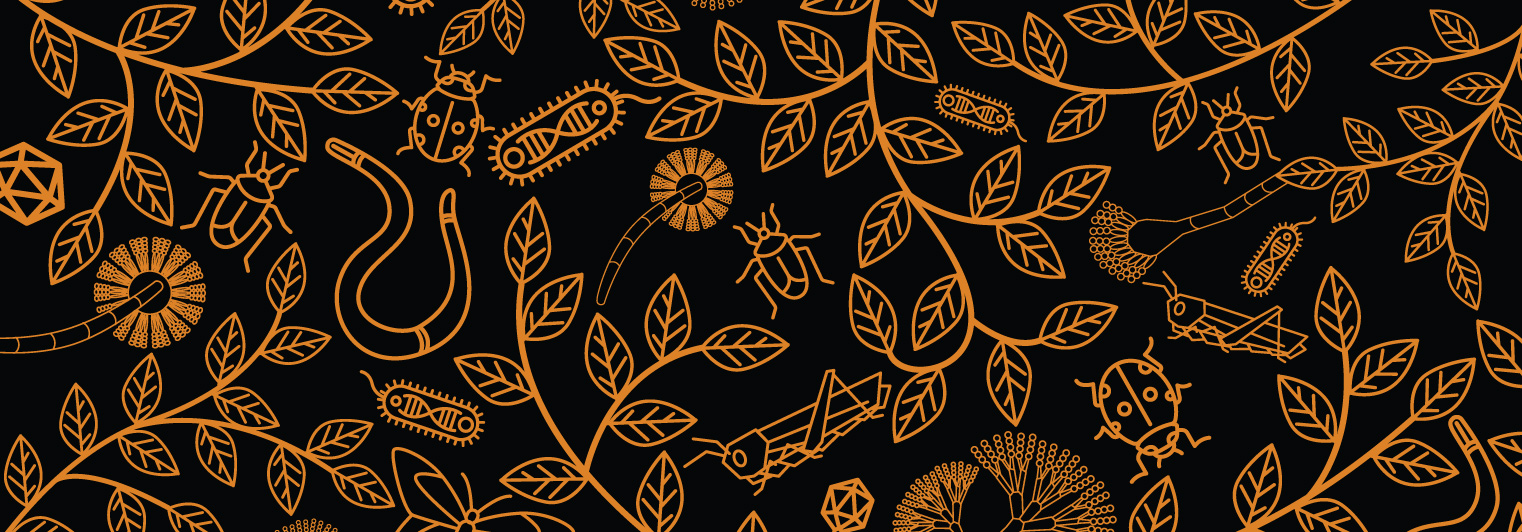
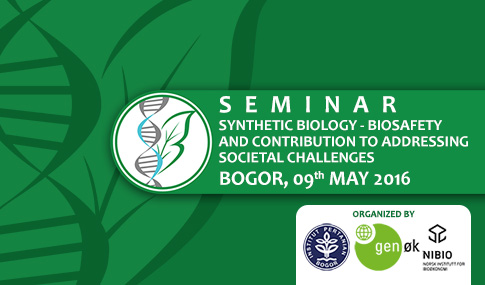
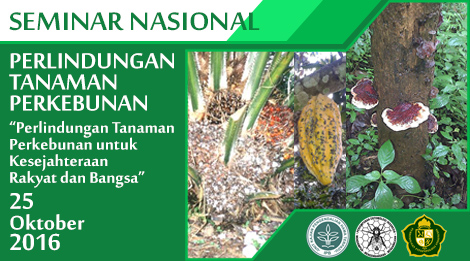
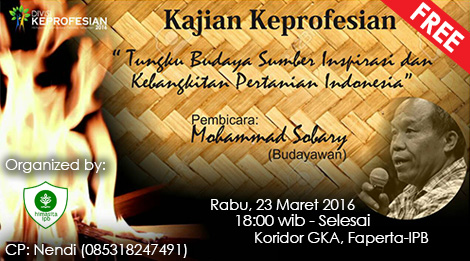
.jpg)